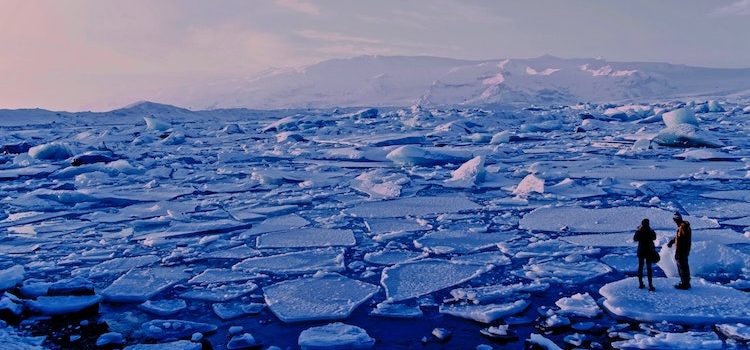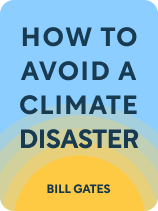

This article is an excerpt from the Shortform book guide to "How to Avoid a Climate Disaster" by Bill Gates. Shortform has the world's best summaries and analyses of books you should be reading.
Like this article? Sign up for a free trial here.
Are the effects of global warming really that bad? How will the rise in the baseline temperature affect the human population?
Our understanding of the effects of global warming continues to evolve as scientists collect more data and as we experience them firsthand. Still, there’s no question that global warming affects ecological communities worldwide.
Keep reading to learn about some of the well-documented negative effects of global warming.
The Effects of a Warmer Atmosphere
In his book How to Avoid a Climate Disaster, Bill Gates presents a practical discussion of climate change informed by his experience as a tech mogul and philanthropist. Gates explains the negative effects of global warming on the planet and proposes ways to reduce global carbon emissions to avoid catastrophic changes.
Changing Weather Patterns
The warmer atmosphere has caused long-term temperature and weather shifts, also known as climate change. For example, we now experience more frequent and intense heat waves, droughts, wildfires, and storms. By the year 2050, Gates cautions that billions of people will personally experience the destruction of wildfires, drinking water shortages, or property damage from heavy storms and flooding.
| The Rising Frequency of Extreme Weather Events The relationship between climate change and extreme weather events is difficult for scientists to pinpoint because it’s impossible to know how extreme individual weather events would have been without climate change. However, scientists can gain insight into how climate change is shifting the frequency of extreme weather by comparing the likelihood of extreme weather events under baseline conditions (in other words, in a world without climate change) to their actual occurrence. For example, in the summer of 2021, the temperature in Portland, Oregon reached 116 degrees Fahrenheit. Researchers estimate that such extreme heat would only be expected 0.1% of the time in a normal year. As temperatures continue to warm, we’ll likely see extreme temperatures much more frequently than probability would suggest—further evidence that climate change is creating a new threshold for extreme weather. For instance, between 2021 and 2022, 229 weather events caused over a billion dollars of damage each in the United States. In contrast, there were only 94 such natural disasters between 1980 and 2001. |
Rising Sea Levels
The warmer atmosphere is causing sea levels to rise due to melting glaciers and ice caps (land-based ice that runs into the ocean as it melts) and thermal expansion in the ocean (water expands as it heats up). Gates notes that rising sea levels can be devastating for coastal communities because of storm surges, flooding, saltwater contamination of freshwater reservoirs, and loss of habitable land.
(Shortform note: In 2022, researchers projected a foot of global sea level rise by 2050, whether carbon dioxide emissions are reduced or not. This additional foot of baseline sea level means coastal communities can expect ten times more damage from flooding and more powerful and dangerous storm surges. Additionally, the report suggests that we can expect sea levels to rise between three and seven feet by the end of the century if emissions continue to increase.)
Health Risks
As the climate changes, different parts of the world will face new and worsening health risks. For example, Gates notes that as the Earth warms, mosquitoes will expand into new areas bringing diseases like malaria with them, and heat stroke will become much more widespread and deadly as extreme heat and humidity worsen.
| Climate Refugees In addition to rising health risks from mosquito-borne diseases and heat stroke, climate change poses an existential threat for communities worldwide. For example, rising global sea levels have already submerged eight Pacific islands and nearly inundated two more. Estimates show that by 2100, 48 Pacific islands could be underwater. Additionally, the United Nations estimates that 20 million people are already being forced from their homes by climate-related hazards every year. Despite the clear link between climate change and life- and livelihood-threatening circumstances, it’s difficult for people displaced by climate change to relocate across international borders as refugees because the term has historically entailed persecution. Therefore, under the current refugee framework, families can be denied assistance even as their homes become unlivable. However, with the UN Refugee Agency recognizing climate change as the defining crisis of our time, there’s a call in the international community to design a legal framework responding to climate-driven migration, or “climate refugees.” |

———End of Preview———
Like what you just read? Read the rest of the world's best book summary and analysis of Bill Gates's "How to Avoid a Climate Disaster" at Shortform.
Here's what you'll find in our full How to Avoid a Climate Disaster summary:
- Bill Gates's technology-based strategies for reducing global carbon emissions
- The challenges and limitations that come with fighting climate change
- The roles governments, private entities, and individuals must play to save the planet






